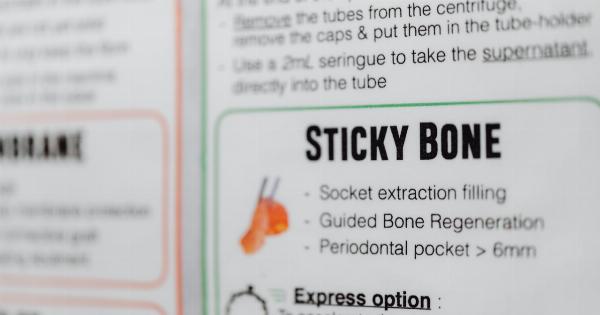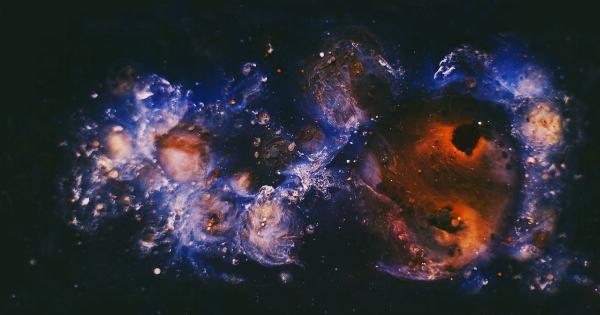Menopause is a natural process that occurs in the life of women, marking the end of their reproductive years. It is a phase in which hormonal changes cause a variety of symptoms, including hot flashes, mood swings, vaginal dryness, and night sweating.
Night sweating is one of the most common symptoms of menopause, which affects almost 75% of women. This article explores the perils of menopause and night sweating and how to manage them effectively.
What is Menopause?
Menopause is a state in which a woman’s menstrual cycle ceases for a period of at least 12 months. It is the permanent end of fertility, marking the end of a woman’s reproductive years.
Menopause typically occurs between the ages of 45 and 55, but it can also occur earlier or later. Menopause is caused by a decrease in the production of estrogen and progesterone by the ovaries, which in turn causes a variety of symptoms.
What are the Symptoms of Menopause?
Menopause affects every woman differently, but the most common symptoms include:.
- Hot flashes
- Night sweats
- Mood swings
- Fatigue
- Insomnia
- Vaginal dryness
- Weight gain
- Decreased libido
What are Night Sweats?
Night sweats are also known as “sleep hyperhidrosis.” It refers to excessive sweating during the night that can drench your clothing and sheets. Night sweats can be mild or severe and can cause sleep disturbance and daytime fatigue.
Nearly 75% of women going through menopause experience night sweat, which can last from one to five years.
Why do Women Experience Night Sweats During Menopause?
The cause of night sweats during menopause is not yet fully known, but it is believed to be due to a decrease in estrogen production. When estrogen levels drop, the hypothalamus in the brain is tricked into thinking that the body is overheating.
The hypothalamus then signals the body to cool down, which results in sweating and flushing, often at night.
What are the Perils of Night Sweats During Menopause?
Night sweats not only cause discomfort, but they can also lead to serious health problems. The following are some of the perils of night sweats during menopause:.
- Sleep Disturbance: Night sweats can cause severe sleep disturbance, which can lead to daytime fatigue, decreased productivity, and concentration problems.
- Dehydration: Night sweating can lead to dehydration, which can cause headaches, dry mouth, and dizziness.
- Mental Health Problems: Chronic night sweats can lead to anxiety, depression, and other mental health problems.
- Relationship Problems: Night sweating can lead to relationship problems due to frequent disruptions of sleep and discomfort.
How to Manage Night Sweats During Menopause?
Fortunately, there are several effective ways to manage night sweats during menopause. Here are some tips:.
- Dress in Layers: Wearing layers of breathable clothing can help regulate your body temperature and prevent sudden changes that cause night sweats.
- Keep a Cool Bedroom: Keeping your bedroom cool can help regulate your body temperature and prevent night sweats. Using a fan or air conditioner can help keep your room cool throughout the night.
- Stay Hydrated: Drinking plenty of water can help prevent dehydration, which can cause headaches and other symptoms.
- Avoid Triggers: Certain foods and beverages such as caffeine, alcohol, and spicy foods can trigger night sweats. Avoiding these triggers can help reduce their frequency.
- Practice Relaxation Techniques: Practicing relaxation techniques such as deep breathing, yoga, and meditation can help reduce stress and prevent night sweats.
- Consider Hormone Replacement Therapy: Hormone replacement therapy (HRT) is an effective treatment for night sweats and other menopausal symptoms. It replaces the hormones that are lost during menopause and can help reduce the frequency and severity of night sweats.
Conclusion
Menopause is a natural process that every woman goes through, but it can be a difficult and uncomfortable experience due to the variety of symptoms it causes, including night sweats.
Night sweats not only cause discomfort but can also lead to serious health problems. However, several effective ways can help manage night sweats, including dressing in layers, keeping a cool bedroom, staying hydrated, avoiding triggers, practicing relaxation techniques, and considering hormone replacement therapy.
With proper management, women can alleviate the perils of menopause and night sweating and enjoy a better quality of life.


























